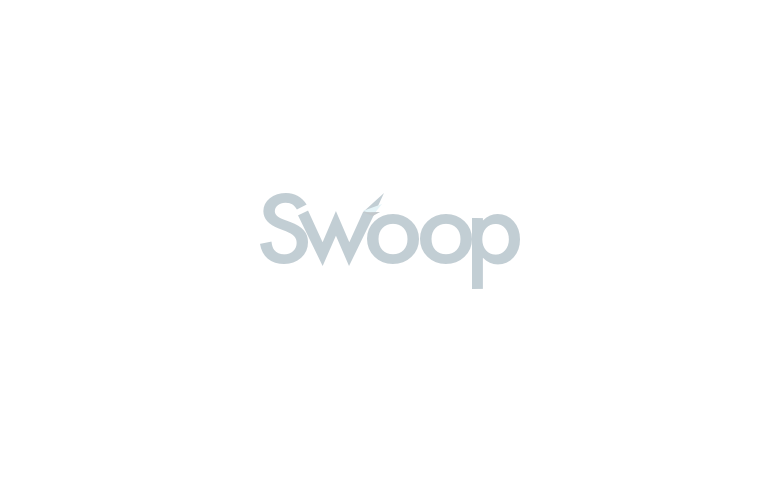TABLE OF CONTENTS
Page written by Chris Godfrey. Last reviewed on February 23, 2026. Next review due April 1, 2027.

Supporting big expansion plans, making key acquisitions, ramping up production, or simply restructuring your business finances can often be tough using only working capital – which is why many organizations turn to business loans of $100,000 or less to fund their plans and growth. Read on to learn more about these types of finance, what they can do for you, and how to get the loan that suits your business best.
There are many types of business loan available for $100k or less – each has its pros and cons:
Commonly used for one-off investments where you know exactly how much cash you need. Commercial real estate purchases, plant and equipment investment, and debt repayment and restructuring activities work well with this kind of loan. You receive a single, lump-sum cash injection and then pay it back in regular instalments, plus interest and any fees, over a fixed period of up to 25 years.
This is a business loan that functions like a high-value credit card but comes with lower interest rates and fees. Organizations can withdraw as much as they want when they want from a loan facility up to the limit of their borrowing. Interest rates are usually fixed, and businesses may repay on a set or flexible schedule. This line of credit is ideal for organizations that want maximum flexibility or for investment situations where the total cash required is unknown. However, expect the lender to request regular financial updates and increased cashflow monitoring as part of the deal.
Also known as account receivables financing, this type of loan allows you to borrow against the value of your unpaid invoices and is best for B2B organizations. The lender will usually provide up to 95% of the invoice value within a few days or even hours of the bill being raised. You may still be responsible for collecting the cash from your clients, or the lender (also known as the ‘factor’) may collect on your behalf. If you collect, you must repay the lender on their schedule. If they collect, they will take back their advance from the client’s payment and then pass any residual sum (after charging interest and fees) back to you.
Available for businesses that accept customer payments by credit and debit card. You borrow against the value of your card sales. As your card sales increase, your borrowing limit goes up. Pay the loan back with a fixed percentage of your card sales on a daily, weekly or monthly basis. Your sales act as security for the loan, no added collateral is required.
Functions like a merchant cash advance but with higher borrowing limits. Based on the size and regularity of their total revenues, (not just their credit card sales), businesses may receive a lump sum and pay it back over a short-term schedule, typically by small deductions from their daily sales. This type of loan can usually be secured quickly as qualification rules are less intensive and credit scores are not so critical. The loan may also be structured as subordinated debt which can keep the pressure off your existing and future banking relationships.
Buying big ticket machinery and equipment can put a major dent in your cashflow, but equipment loans can pay for your new plant and machinery without causing financial stress. Equipment loans are ‘self-collateralizing’ – they use the asset you’re financing as security, similar to a car loan or a residential mortgage. Once the loan is approved, the lender sends the funds to the equipment vendor, who then delivers the machinery. You use the equipment as you pay for it and the lender maintains a lien on the title to the machinery. Once you pay the loan back, the lender releases the lien, and you own the equipment outright.
If your business doesn’t qualify for a $100,000 business loan, there are other ways to secure the funds you need to make your business grow:
If you have good credit, it may be possible to secure a business credit card with a high limit to fund your organization. The application process is usually online, fast, streamlined and does away with the need for piles of paperwork – in many cases you won’t even need a formal business structure to apply. Business credit cards are also great for building a good credit history if you pay off the balance every month. You may even get free travel and shopping rewards with the points you accrue.
If you’re seeking outside investment, there are networks of venture capitalists and angel investors readily available online. Bringing in external investment can give you the cash you need, and it may also deliver a unique and extra set of skills and contacts that can help your organization grow even faster.
Note that investors will usually want a piece of the action in exchange for their money. This will mean you giving up a share of your ownership and may loosen your overall control of the business. Some investors may also want higher dividends or royalty payments as well as their share of equity. Venture capitalists and angel investors are also notoriously picky about the businesses they choose to back. You could spend many months pursuing one lead after another before you find the right match.
Available via various online platforms, crowdfunding can bring in large sums if your presentation hits the right spot. Although it may be tough to raise $100k in small donations from hundreds of donors, this cash is essentially free as there is no interest to pay and you do not need to repay the money if you spend it where you said you would. An eye-catching idea and a powerful pitch is essential to succeed with this funding option.
Business loans for $100,000 or less can be obtained from almost any lender, but loans from banks and credit unions typically come with lower interest rates and stricter rules of approval, whereas loans from online and alternative lenders may cost you more but approval rules are easier. As a rule of thumb, the larger the sum you are trying to borrow, the harder lenders will look at your business and your application.
You can improve your chances of getting approved for a $100k or less business loan by preparing in advance. Key tasks to take care of include:
Business loan applications can be affected by a number of different factors:
Once you have your paperwork ready it makes sense to shop around for different business loan offers before settling on a lender. You can do this by approaching banks, credit unions and online lenders one by one, or you can use the services of a loan marketplace that will introduce you to a choice of loan deals from different lenders.
Some marketplace platforms can also give you advice and help you with the application process. This can be especially useful for business owners who have never taken out a business loan before.
No matter if you’re seeking your first business loan or you’re a seasoned borrower, working with business finance experts can make all the difference when applying for your loan. Contact Swoop to discuss your borrowing needs, get help with your application and to compare high-quality $100k or less business loans from a choice of lenders. Give your organization the financial boost it deserves. Register with Swoop today.
Written by
Chris is a freelance copywriter and content creator. He has been active in the marketing, advertising, and publishing industries for more than twenty-five years. Writing for Barclays Bank, Metro Bank, Wells Fargo, ABN Amro, Quidco, Legal and General, Inshur Zego, AIG, Met Life, State Farm, Direct Line, insurers and pension funds, his words have appeared online and in print to inform, entertain and explain the complex world of consumer and business finance and insurance.
Swoop promise
At Swoop we want to make it easy for SMEs to understand the sometimes overwhelming world of business finance and insurance. Our goal is simple – to distill complex topics, unravel jargon, offer transparent and impartial information, and empower businesses to make smart financial decisions with confidence.
Find out more about Swoop’s editorial principles by reading our editorial policy.
Create your free Swoop account to get your free business loan quote for up to $100,000 today
Related pages
Get your free $100,000 or less business loan quote today
Join the 110,000+ businesses just like yours getting the Swoop newsletter.
Free. No spam. Opt out whenever you like.
Kingfisher Way, Silverlink Business Park, Newcastle upon Tyne, NE28 9NX, UK
View in Google MapsAberystwyth Innovation and Enterprise Campus
Gogerddan Campus
Aberystwyth University
Ceredigion
SY23 3EE
Dogpatch Labs, The CHQ Building, Custom House Quay, Dublin, Ireland
View in Google MapsSuite 801, Level 8, 84 Pitt Street, Sydney, NSW 2000, Australia
View in Google Maps43 W 23rd St, New York, NY 10010, United States
View in Google Maps21 Dreyer Street, Cape Town, South Africa, 7708
View in Google Maps
Disclaimer: Swoop Finance Ltd (Swoop) helps Canadian firms access business finance, working directly with businesses and their trusted advisors. We are a credit broker and do not provide loans or other finance products ourselves. All finance and quotes are subject to status and income. Applicants must be aged 18 and over and terms and conditions apply. Guarantees and Indemnities may be required. Swoop can introduce applicants to a number of providers based on the applicants’ circumstances and creditworthiness. Swoop may receive a commission or finder’s fee for effecting such introductions. If you feel you have a complaint, please read our complaints section highlighted above and also contained within our terms and conditions.
Clever finance tips and the latest news
Delivered to your inbox monthly
Join the 110,000+ businesses just like yours getting the Swoop newsletter. Free. No spam. Opt out whenever you like.




